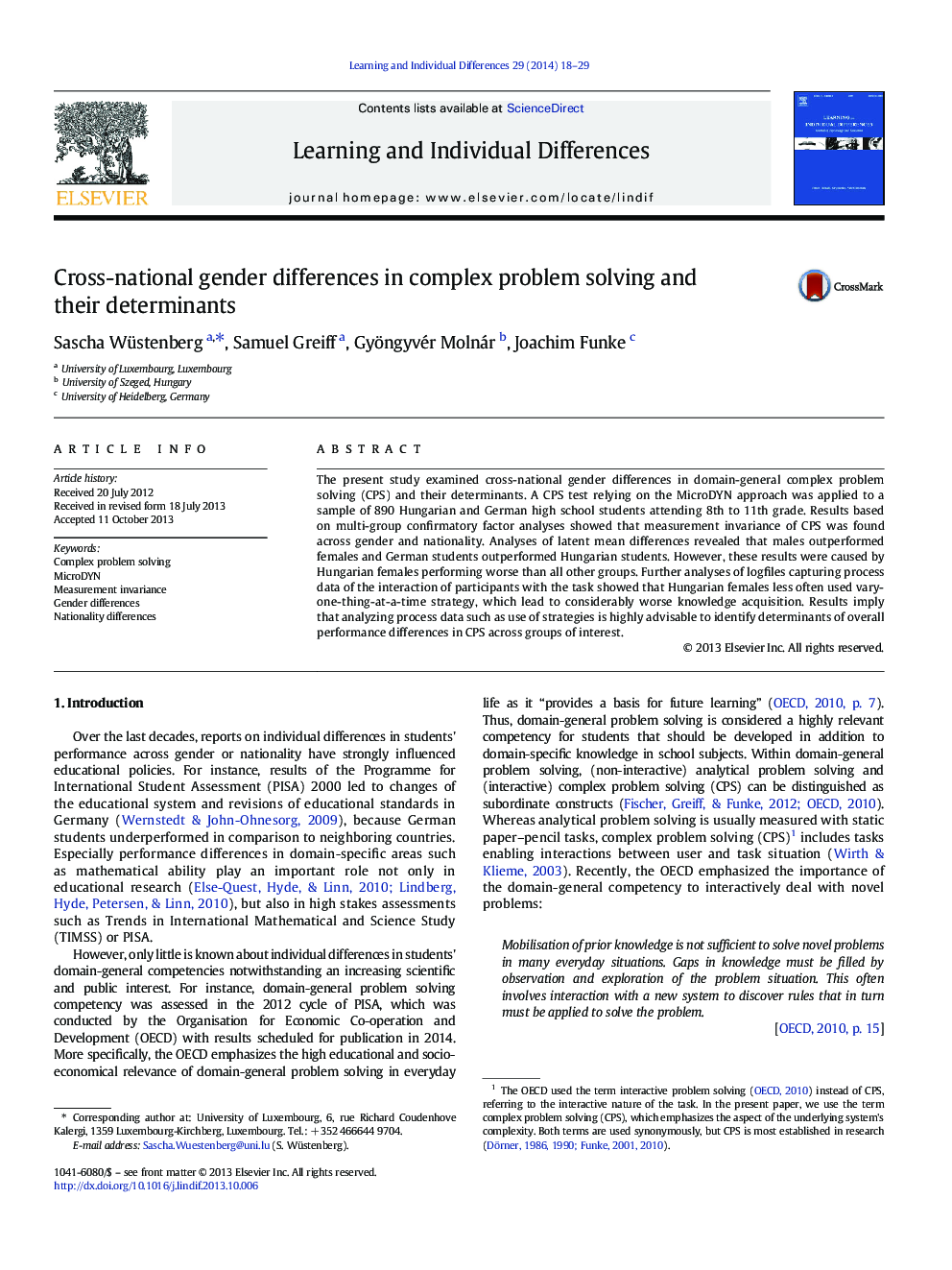| Article ID | Journal | Published Year | Pages | File Type |
|---|---|---|---|---|
| 364983 | Learning and Individual Differences | 2014 | 12 Pages |
•We introduce complex problem solving (CPS) as a domain-general competency.•We investigate latent mean differences of CPS across gender and nationality.•Germans outperformed Hungarians and males outperformed females.•Results in knowledge acquisition occurred due to groups' different use of strategy.•Analyzing process data yield important insights in determinants of CPS performance.
The present study examined cross-national gender differences in domain-general complex problem solving (CPS) and their determinants. A CPS test relying on the MicroDYN approach was applied to a sample of 890 Hungarian and German high school students attending 8th to 11th grade. Results based on multi-group confirmatory factor analyses showed that measurement invariance of CPS was found across gender and nationality. Analyses of latent mean differences revealed that males outperformed females and German students outperformed Hungarian students. However, these results were caused by Hungarian females performing worse than all other groups. Further analyses of logfiles capturing process data of the interaction of participants with the task showed that Hungarian females less often used vary-one-thing-at-a-time strategy, which lead to considerably worse knowledge acquisition. Results imply that analyzing process data such as use of strategies is highly advisable to identify determinants of overall performance differences in CPS across groups of interest.
